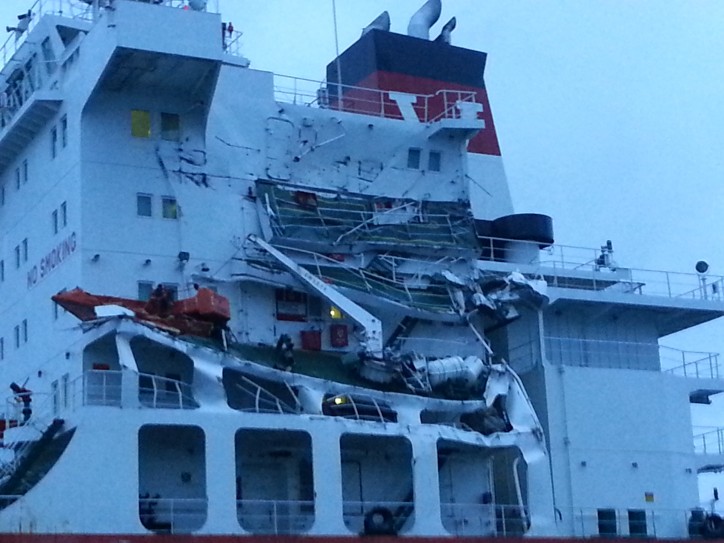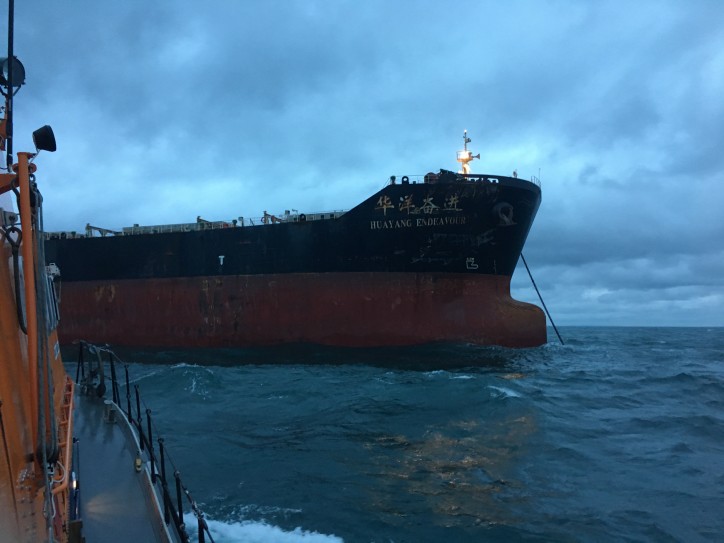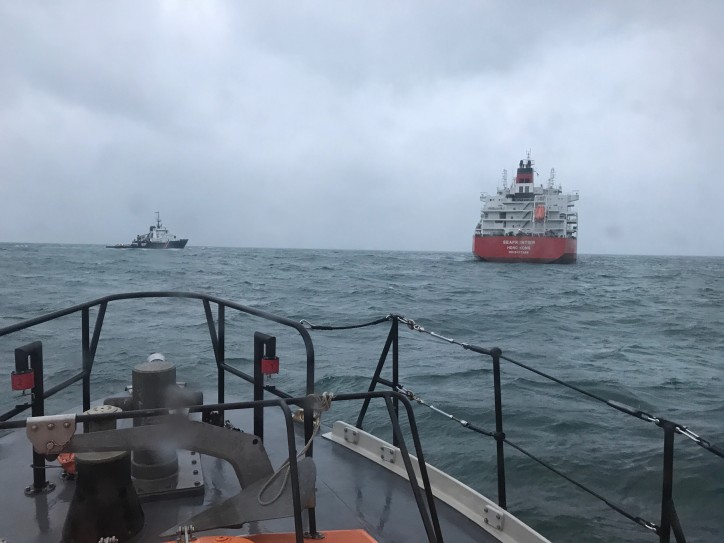The UK Coastguard called for the immediate launch of the Dover and Ramsgate RNLI all-weather lifeboats just after 2.15am on Saturday 1 July following reports that a bulk carrier and crude oil tanker, with a total of 49 people on board the two vessels, had collided and were at a complete stop.

With initial reports of damage to at least one of the ships and the location of the incident in the south-west channel of the busy main shipping lane, both RNLI vessels raced to the scene, approximately 15 miles northeast of Dover, crewed by a total of 15 RNLI volunteers. Nine crew were on board the Dover Severn class lifeboat City of London 2 and six on board the Ramsgate Trent class lifeboat, Esme Anderson.

Meanwhile the UK Coastguard Rescue Helicopter 163 was on the scene to assess the damage to the vessels, a 48,580 ton, 183m long crude oil tanker, the Seafrontier, registered in Hong Kong and the Huayang Endeavour, a 75,000 ton bulk carrier measuring 225m long and also registered in Hong Kong. It is understood both vessels suffered damage in the collision with the Seafrontier having a hole above the water line and damage to the superstructure.
On reaching the ships, the Ramsgate lifeboat was tasked with standing alongside the Seafrontier while the Dover lifeboat stood ready to assist the Huayang Endeavour while a tug was called to the scene from Boulogne , France.
Both lifeboats were stood down at 05.44am by which time the tug was in assistance and the Seafrontier taken under tow.
The Ramsgate lifeboat was launched at 02.37am and on scene at 03.15am. The Dover lifeboat was launched at 02.42am and was on the scene at 03.59am. Weather conditions at the time of the call-out showed a moderate wind and the state of the sea was calm.

Although it was fortunate there were no casualties, the incident demonstrated how quickly the RNLI is able to respond to an incident in the world’s busiest shipping lane with the Ramsgate all-weather lifeboat on the scene within 38 minutes of launching and the Dover all-weather lifeboat on location just over an hour after launching.
Key facts about the RNLI
The Royal National Lifeboat Institution (RNLI) is the charity that saves lives at sea. Its volunteers provide a 24-hour search and rescue service in the United Kingdom and Ireland from 238 lifeboat stations, including four along the River Thames and inland lifeboat stations at Loch Ness, Lough Derg, Enniskillen and Lough Ree. Additionally, the RNLI has more than 1,000 lifeguards on over 240 beaches around the UK and operates a specialist flood rescue team, which can respond anywhere across the UK and Ireland when inland flooding puts lives at risk.
The RNLI relies on public donations and legacies to maintain its rescue service. As a charity, it is separate from, but works alongside, government-controlled and funded coastguard services. Since the RNLI was founded in 1824, the lifeboat crews and lifeguards have saved at least 140,000 lives. Volunteers make up 95% of the charity, including 4,600 volunteer lifeboat crew members and 3,000 volunteer shore crew. Additionally, tens of thousands of other dedicated volunteers raise funds and awareness, give safety advice, and help in our museums, shops and offices.
Source: RNLI